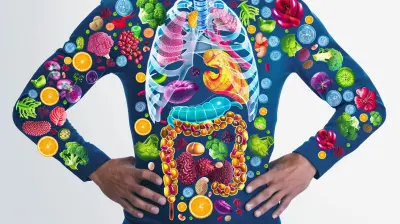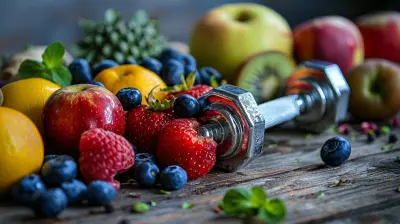Vegan Athlete Nutrition: Getting Enough Protein on a Plant-Based Diet
14 August 2025
Let’s be real: one of the biggest myths floating around in the fitness world is that you can’t get enough protein on a vegan diet. If I had a dollar for every time someone asked, “But... where do you get your protein?”—well, let’s just say I’d have enough to stock my kitchen with a year’s supply of tofu and tempeh.
If you’re a vegan athlete or just someone crushing it in the gym on a plant-based diet, this one’s for you. Let's break down exactly how you can fuel those gains, optimize performance, and still stick to your vegan values—without ever stressing over protein again.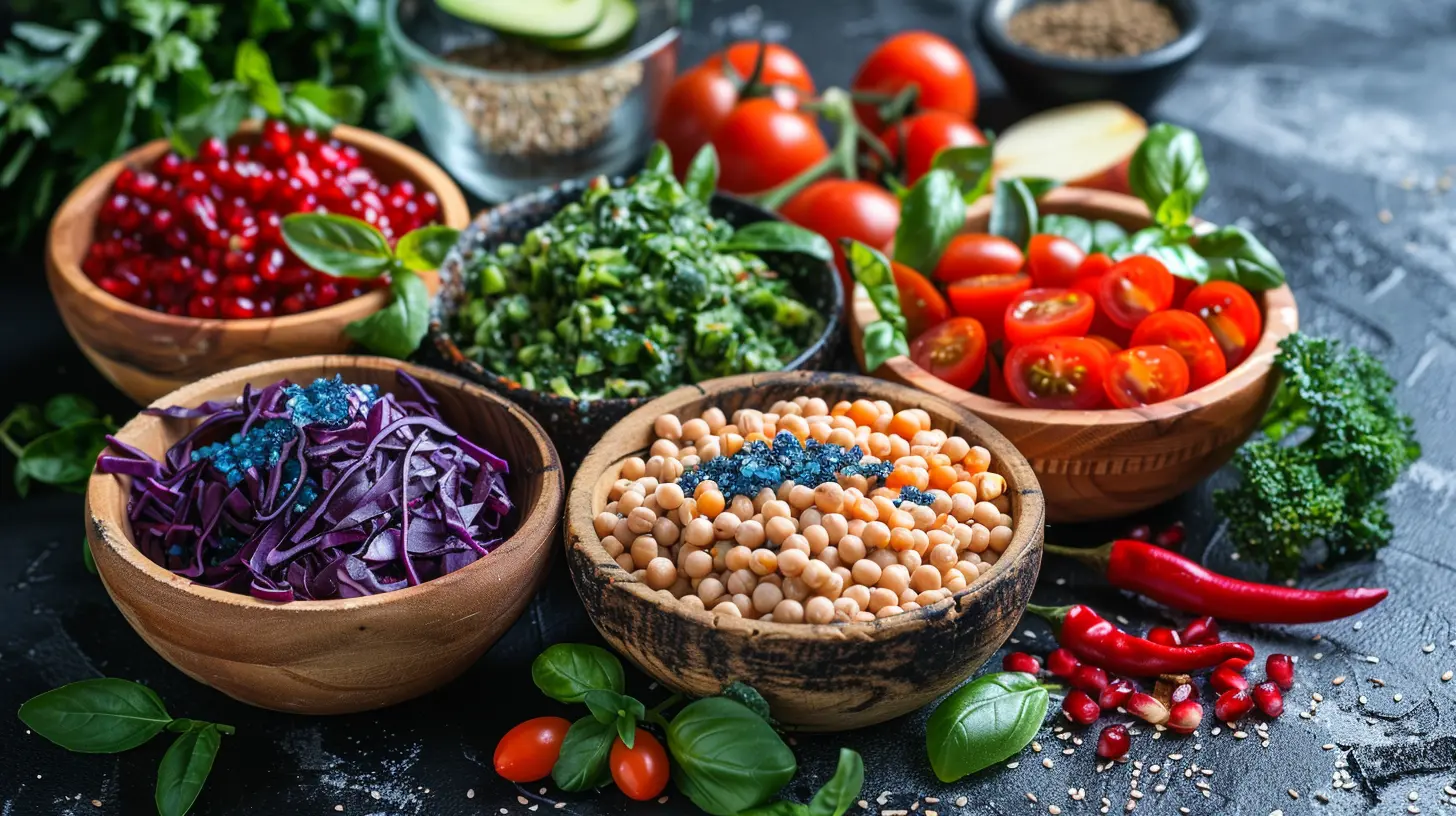
🍃 Why Protein Matters for Athletes
Before we dive into the plant-based powerhouses, let’s take a second to talk about why protein is a big deal for athletes.Whether you’re into running, weightlifting, CrossFit, or yoga, your muscles need protein to recover and rebuild after each workout. Protein isn't just about bulking up—it's critical for muscle repair, hormone production, immune function, and so much more.
A physically active person needs more protein than a sedentary one—period. But guess what? That doesn’t mean you need to scarf down steaks or chug whey protein shakes. Plants have your back.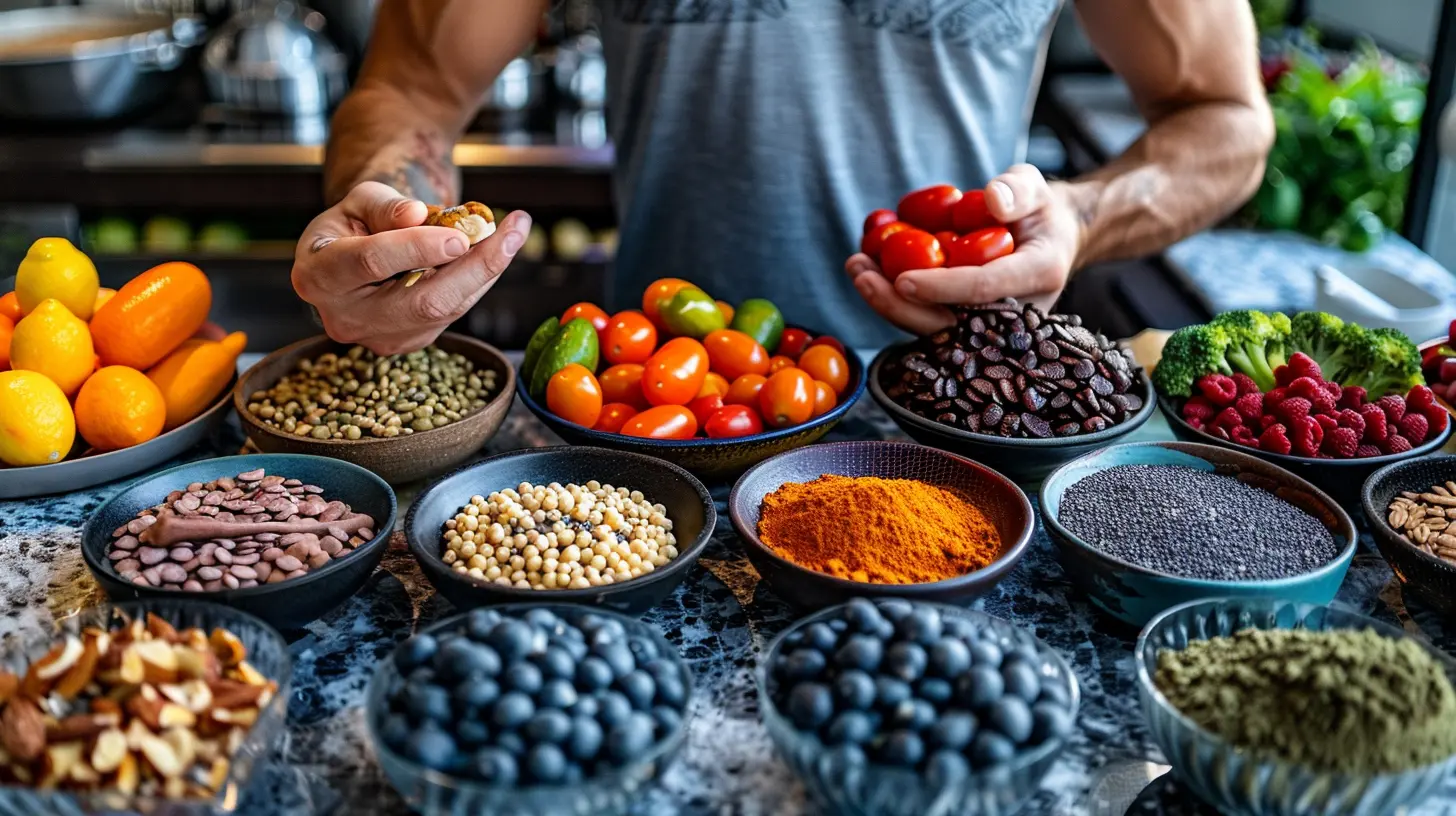
🌱 Can You Get Enough Protein on a Plant-Based Diet?
Short answer? Heck yes.Long answer? It takes a little planning, but it’s totally doable—and you might even feel better doing it. Plant-based athletes not only meet their protein needs, but many also report improved recovery, reduced inflammation, and more energy. Sounds like a win-win to me.
Let’s debunk the myth that plant protein is “incomplete.” That old chestnut has been busted. As long as you eat a varied diet, you’ll naturally get all nine essential amino acids without thinking too hard about food combining.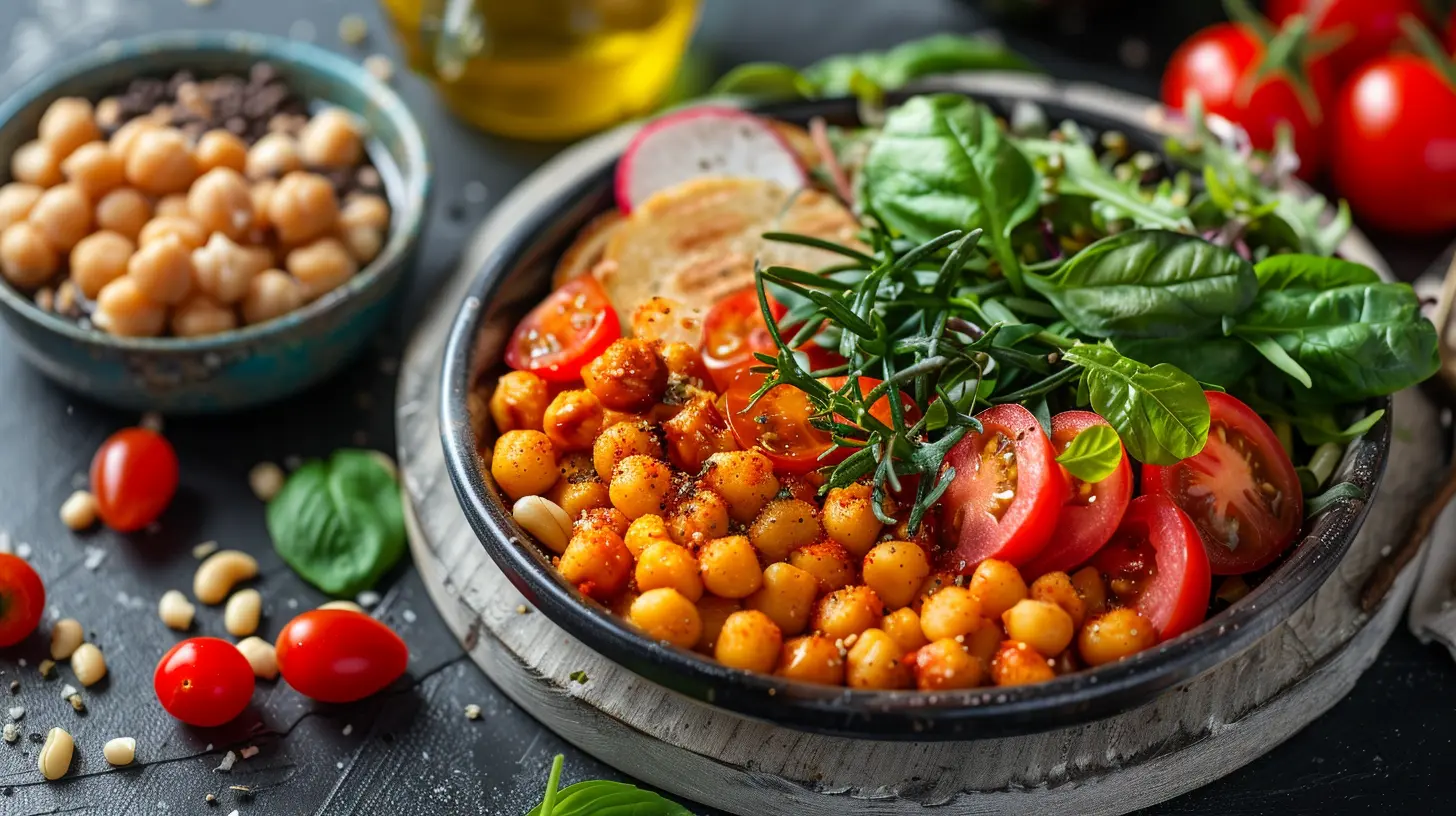
🥦 Protein-Packed Plant Foods Every Vegan Athlete Should Know
You don’t need exotic or expensive foods to hit your protein goals. Chances are, your pantry already has some solid plant protein MVPs. Here's what to stock up on:1. Legumes (Beans, Lentils, Chickpeas & Peas)
The unsung heroes of the vegan world. One cup of cooked lentils can pack around 18 grams of protein. Plus, they’re full of fiber, iron, and other key nutrients.Try it: Whip up a hearty lentil stew or toss chickpeas into a salad.
2. Tofu, Tempeh & Edamame
These soy-based champs are seriously protein-dense. Tofu has around 10 grams per 1/2 cup, while tempeh clocks in at about 15-20 grams.Try it: Marinate tempeh and grill it for a smoky, meaty vegan protein fix.
3. Whole Grains (Quinoa, Brown Rice, Oats)
Quinoa is a complete protein, and even though grains aren’t as protein-rich as legumes, they add up—especially if you’re eating enough calories as an athlete.Try it: Make a quinoa bowl loaded with veggies, beans, and some avocado.
4. Nuts and Seeds (Almonds, Chia, Hemp, Pumpkin Seeds)
Small but mighty. Hemp seeds are protein beasts with about 10 grams in 3 tablespoons—and all essential amino acids.Try it: Sprinkle hemp or chia seeds in your smoothie or oatmeal for a power boost.
5. Plant-Based Protein Powders
Let’s not forget the convenience of protein powders. Many blends made from pea, brown rice, or hemp offer 20+ grams per scoop.Try it: Post-workout smoothie with frozen banana, almond milk, spinach, and a scoop of vegan protein powder.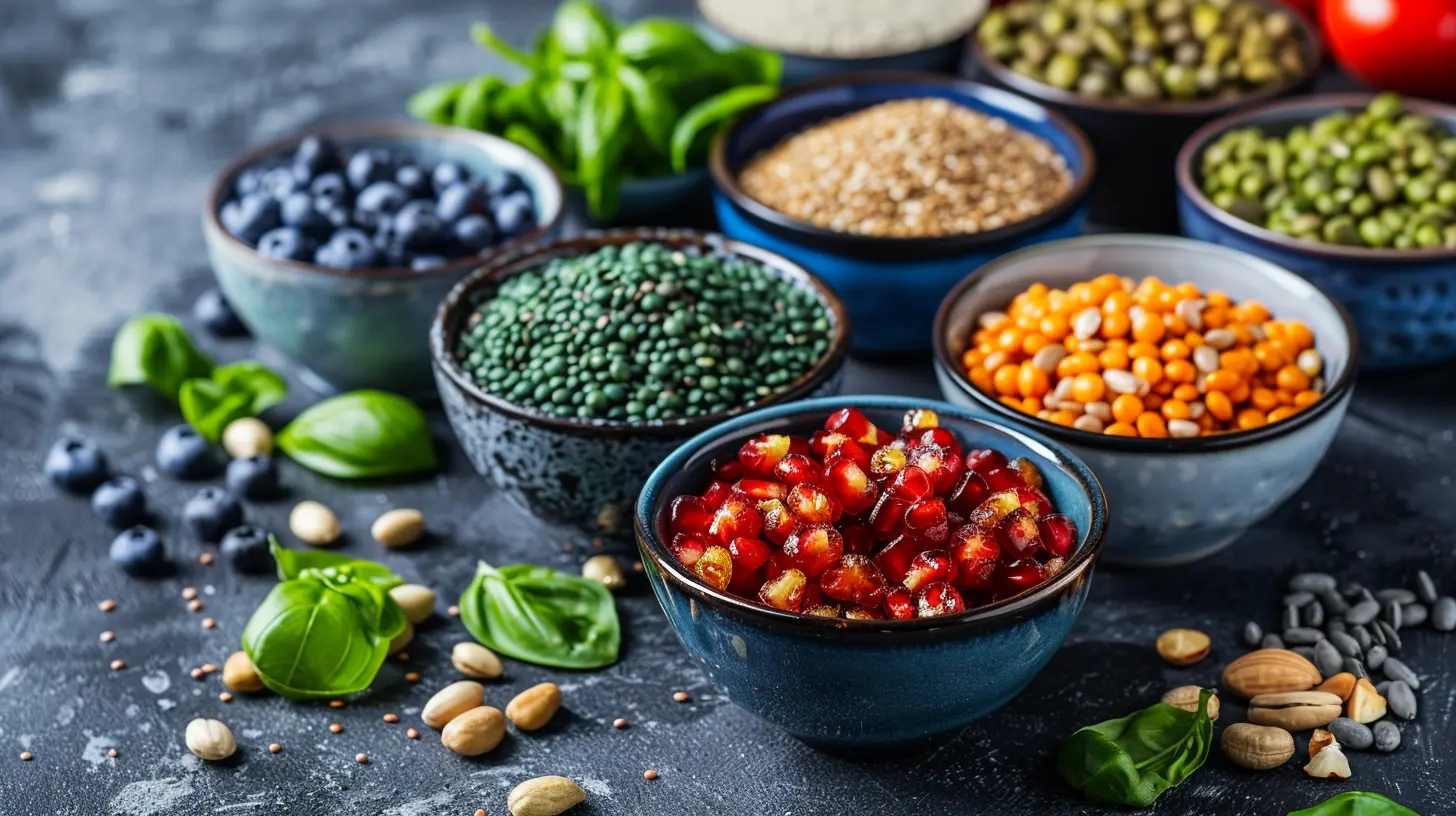
🧠 How Much Protein Do Vegan Athletes Need?
Here's where it gets a bit personal—because your protein needs depend on your body weight, goals, and activity level.- Recreational athletes need around `1.2 - 1.4 grams` of protein per kilogram of body weight.
- Endurance athletes might aim for `1.4 - 1.6 g/kg`.
- Strength athletes crank it up to `1.6 - 2.2 g/kg`.
Quick math: If you weigh 70 kg (about 154 lbs), you might need up to `154 grams` a day if you’re lifting heavy.
That may sound like a lot, but when you factor in meals and snacks throughout the day, it’s totally achievable. Think: oatmeal with peanut butter for breakfast, lentil curry for lunch, tempeh stir fry for dinner, and a protein shake after a workout. Boom.
🥗 What Does a Day of High-Protein Vegan Eating Look Like?
Truth time: eating protein on a vegan diet doesn't mean chomping on sad lettuce leaves all day.Here’s what a sample day could look like for an active, plant-powered person:
Breakfast:
- Steel-cut oats with almond butter, chia seeds, soy milk, and berries
- Protein: ~20 grams
Snack (Post-workout):
- Vegan protein shake with banana and hemp seeds
- Protein: ~25 grams
Lunch:
- Tempeh salad with quinoa, kale, avocado, and black beans
- Protein: ~35 grams
Snack:
- Hummus with carrots and whole grain crackers
- Protein: ~10 grams
Dinner:
- Lentil and sweet potato chili with brown rice
- Protein: ~30 grams
Evening Snack:
- Greek-style almond yogurt with granola
- Protein: ~10 grams
Total Protein: ~130 grams (and that's without even trying that hard)
💪 Practical Tips to Max Out Your Vegan Protein
Let’s keep it simple. If you want to make sure you’re getting enough protein, here are some quick and dirty tips:✅ Add a protein source to every meal and snack
Even a handful of almonds between meals adds up. Think of protein like your sidekick—it should be riding shotgun with every major bite you take.✅ Eat enough calories
If you’re training hard and not eating enough, your body might start breaking down muscle—no bueno. Fuel your workouts, and your muscles will thank you.✅ Play the mix-and-match game
You don’t have to stress over food combining, but varied meals (grains + legumes, for example) naturally balance amino acid profiles.✅ Use fortified foods smartly
Some plant-based milks, yogurts, and cereals are fortified with protein and other nutrients like B12 and iron. Read those labels like a detective!✅ Meal prep = protein pro
When you're busy, it's easy to grab whatever’s available. Keep protein-rich vegan staples like cooked lentils, roasted chickpeas, and baked tofu ready to roll.🌟 Bonus: Don't Forget About These Other Key Nutrients
Protein’s the star today, but as a vegan athlete, you should also keep your eye on the supporting cast. Here’s who else deserves a shout-out:- Iron: Found in lentils, spinach, pumpkin seeds (pair with vitamin C-rich foods to boost absorption)
- B12: A must-have since it’s not found in plants—get it through fortified foods or a supplement
- Omega-3s: Chia seeds, flaxseeds, and walnuts are your go-tos
- Calcium: Look for fortified plant milks and eat greens like kale and bok choy
🏁 Final Thoughts: You’ve Got This
Let’s wrap it up like a tempeh burrito.Being a vegan athlete is not only 100% possible—it can be downright powerful. With the right whole foods, a sprinkle of planning, and maybe a protein powder for good measure, you can hit your performance goals without ever touching animal products.
So next time someone asks, “But where do you get your protein?”—you’ll have a delicious, protein-packed answer (and maybe even a high-fiber mic drop).
all images in this post were generated using AI tools
Category:
Sports NutritionAuthor:

Madeline Howard
Discussion
rate this article
1 comments
Lira Carter
This article offers an intriguing look at how vegan athletes meet their protein needs. I’m curious about the various plant-based sources highlighted and their effectiveness in enhancing performance. It’s fascinating to explore how diverse diets can fuel athletic excellence. Looking forward to learning more!
August 27, 2025 at 4:56 AM

Madeline Howard
Thank you for your interest! I'm glad you found the article intriguing. Stay tuned for more insights on plant-based protein sources and their impact on athletic performance!
